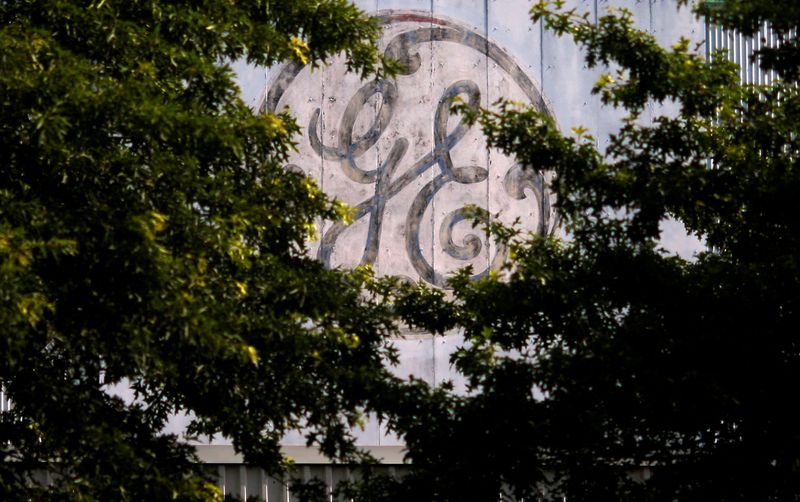By Rajesh Kumar Singh
CHICAGO (Reuters) -General Electric Co warned on Friday that a supply chain logjam coupled with a labor crunch and inflation will pressure profits through the first half of the year.
The Boston-based industrial conglomerate, however, did not change its 2022 earnings forecast. In a regulatory filing, the company said the forecast, which was shared with investors last month, had factored in supply-chain and inflationary challenges.
GE expects adjusted profit in the range of $2.80 per share to $3.50 per share in 2022, compared with $1.71 per share last year. Full-year free cash flow is estimated at $5.5 billion to $6.5 billion, up from $2.6 billion in 2021.
The company’s shares were down 5.6% at $92.94 in early afternoon trade.
Roughly two years into the coronavirus pandemic that has snarled supply chains across the globe and driven up costs for everything from labor to raw materials, companies of all sizes are scrambling not just to produce enough to feed current demand – but to also restock inventory shelves.
Last month, Tesla said it would delay releasing new vehicles until next year because of supply chain breaks that the electric car maker said could last through this year.
Siemens Gamesa, the world’s largest maker of offshore wind turbines, has issued three profit warnings in nine months, citing supply-chain problems.
GE said it was grappling with supply-chain issues across most of its businesses. It said raw material and labor shortages, along with soaring costs, were adversely impacting its healthcare, renewable energy and aviation units.
In response, the company said it is raising prices and trying to keep a lid on costs. It is trying to source alternative parts to help deal with shortages.
“While these improvements will take time to show in our results, we continue to see strong demand which will support our growth throughout the year,” GE said.
GE will hold an investor conference on March 10.
(Reporting by Rajesh Kumar Singh in Chicago and Aishwarya Nair in Bengaluru; Editing by Arun Koyyur and Tim Ahmann)






















